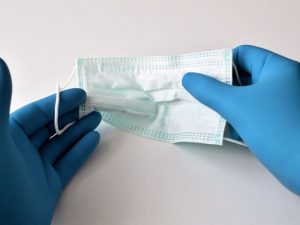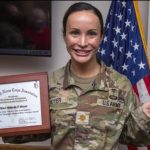Beyond the Pandemic
 The editorial team at American Nurse Journal wanted to know what leaders in the field are thinking, so they convened a virtual roundtable. Leaders in different roles and in different geographic locations were asked to respond to several pandemic-related questions. Here’s a sampling of their responses to a few of the questions.
The editorial team at American Nurse Journal wanted to know what leaders in the field are thinking, so they convened a virtual roundtable. Leaders in different roles and in different geographic locations were asked to respond to several pandemic-related questions. Here’s a sampling of their responses to a few of the questions.
What is the one big change you would like to see in the nursing profession as a result of the pandemic?
I’d like to see a focus in nursing programs on disaster/pandemic preparedness, and providing the tools necessary for nurses entering the workforce. This education and training should be continued in healthcare facilities as well. Also, formalized crisis support systems for nurses and healthcare team members at the organizational, state, and national levels are important.
Jennifer Adamski, DNP, APRN, ACNP-BC, CCRN, FCCM, is program director for the adult-gerontology acute care nurse practitioner program at Nell Hodgson Woodruff School of Nursing at Emory University in Atlanta, Georgia, and a critical care nurse practitioner for the Cleveland Clinic Critical Care Flight Team in Ohio.
I want to see nurses recognized as a key foundation of healthcare and for universities and healthcare organizations to make a conscious effort to highlight nurses as healthcare experts in the media. For example, I see many commercials encouraging vaccinations, but none have featured nurses, who are the ones giving the vaccine and being asked questions by patients. In addition, I want to see nurses recognized for their talent, their education, their expertise, and the remarkable impact they have on health care.
Dewi Brown-DeVeaux, DNP, MS, BS, RN, ONC, is director of nursing at NYU Langone Orthopedic Center in New York, New York.
I would like to see the continued grace that we have given others over the last 18 months. When stress levels were high and patience was low, we paused and thought about what others were experiencing in the moment. We weren’t critical of one another, and we came together to safely care for patients. It didn’t matter what department people worked in or if they were critical care or not, everyone’s contribution was vital. The old saying of, “nurses eat their young” became nonexistent.
Kathleen Diatta, PhD, RN, NE-BC, is unit director of PACU/POHA at Emory Healthcare in Atlanta, Georgia.




